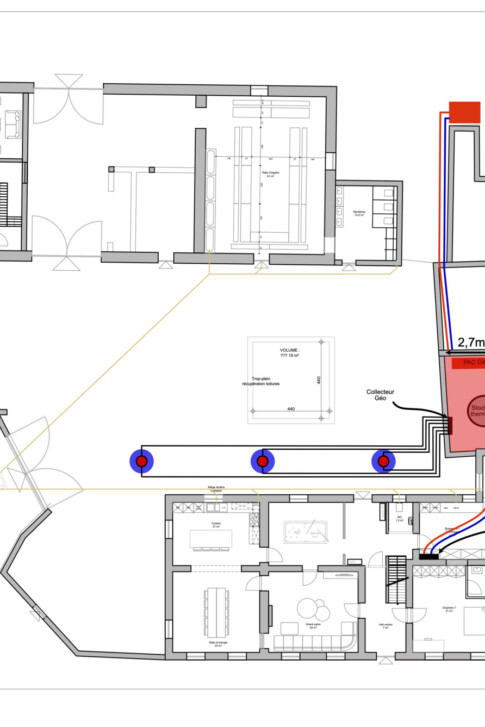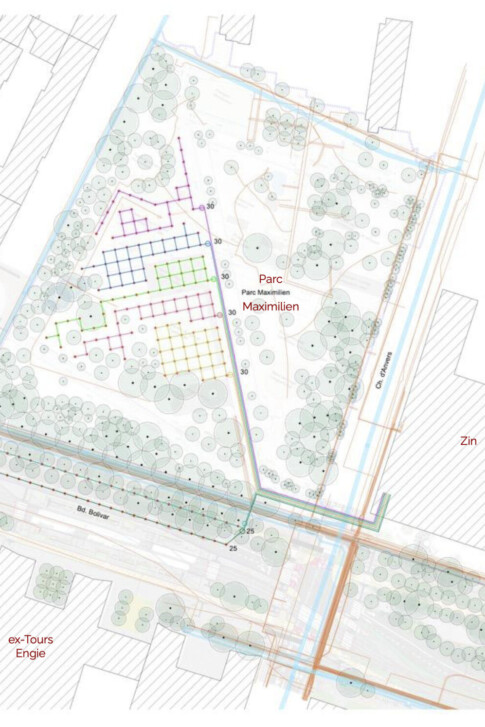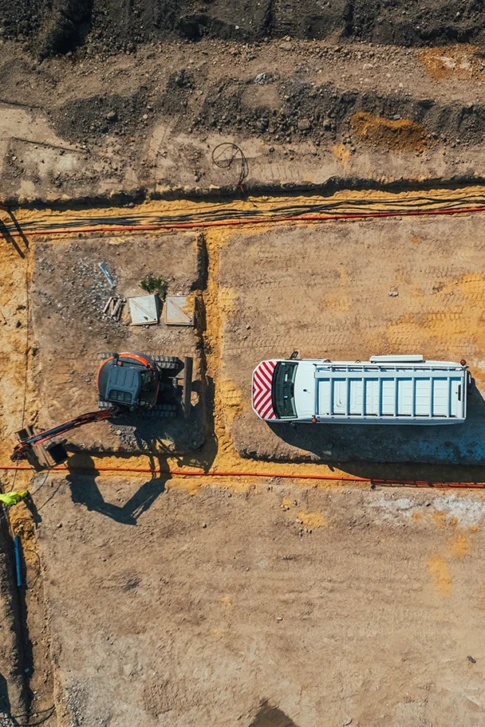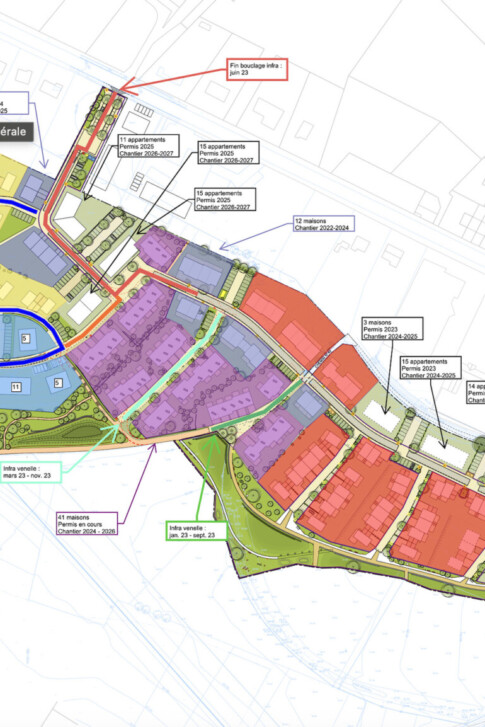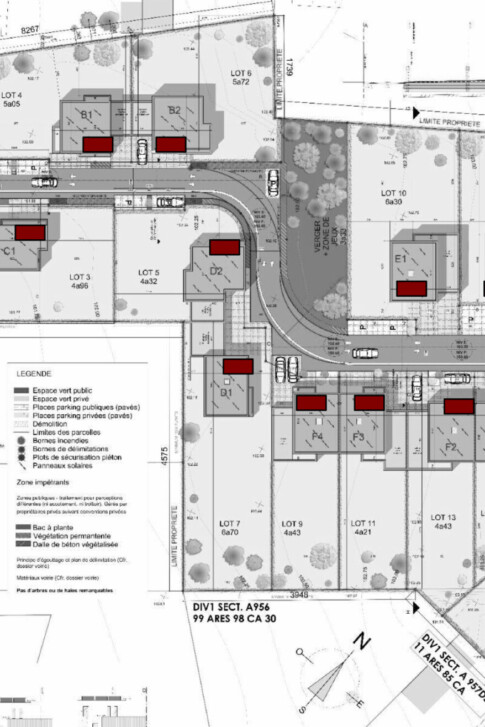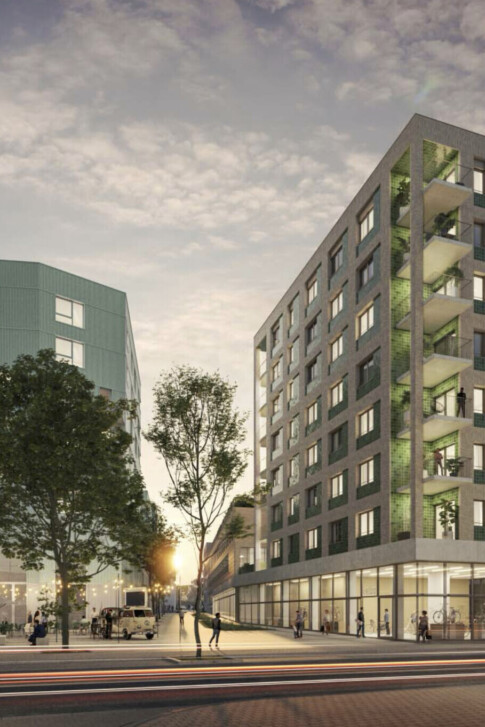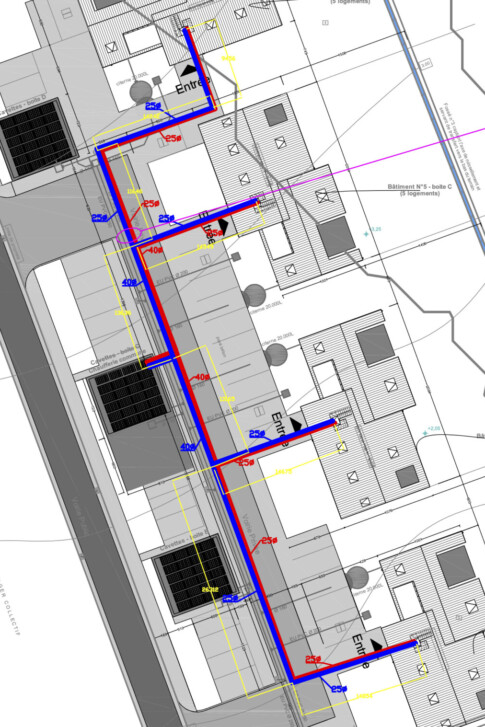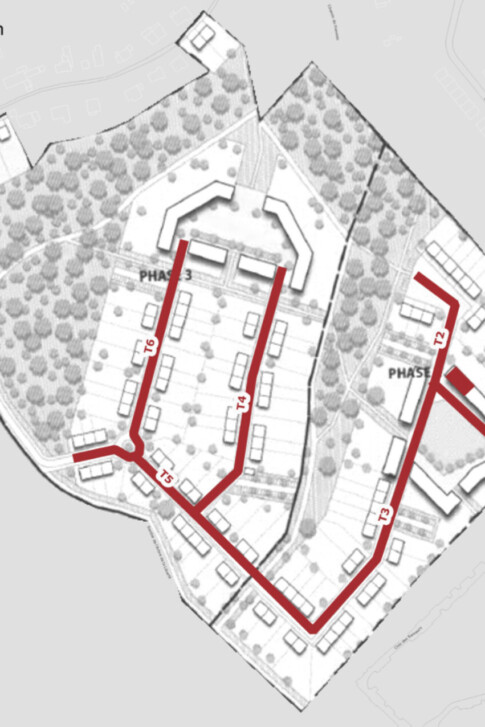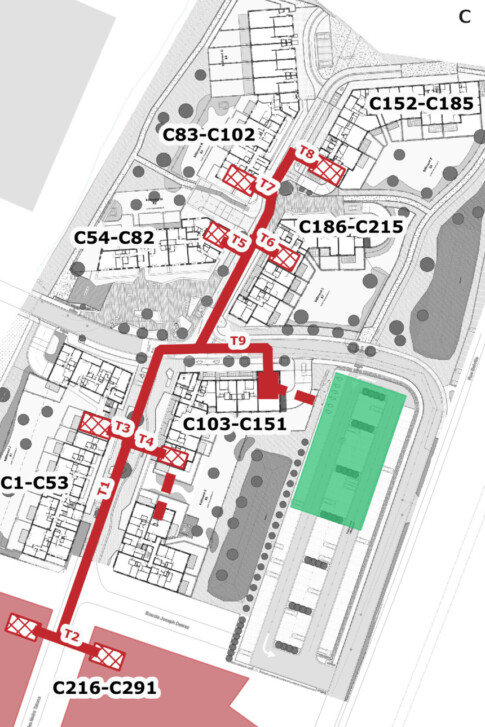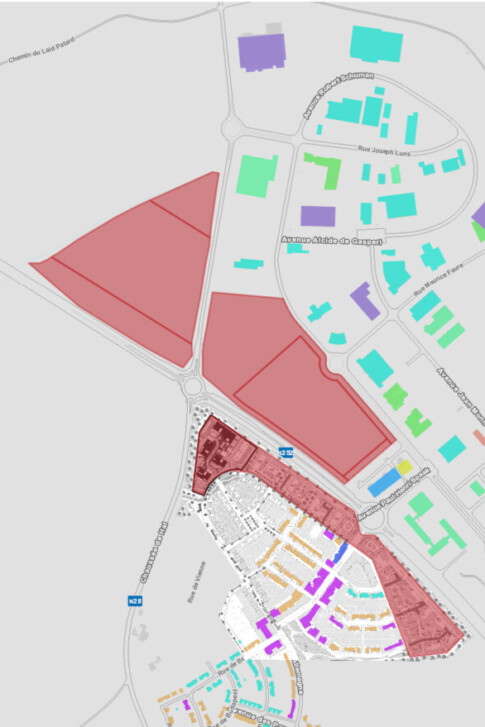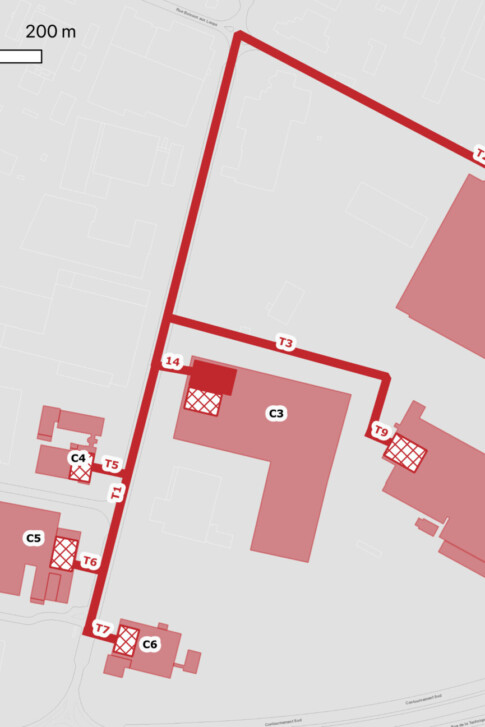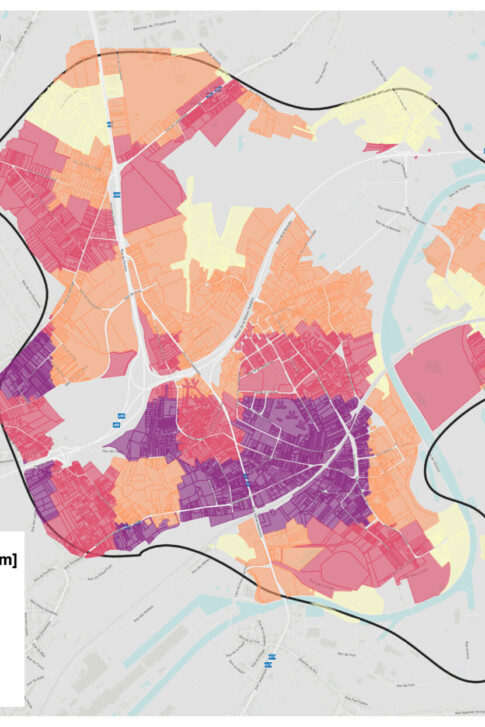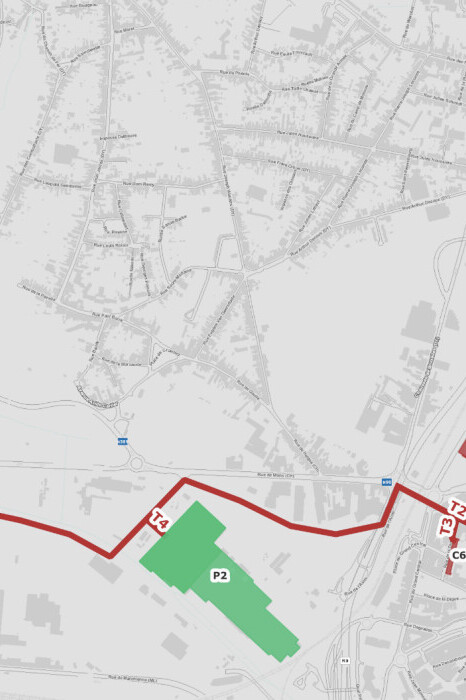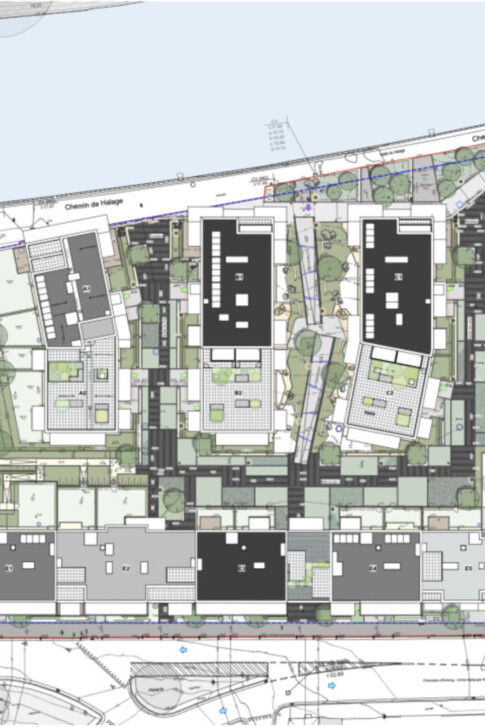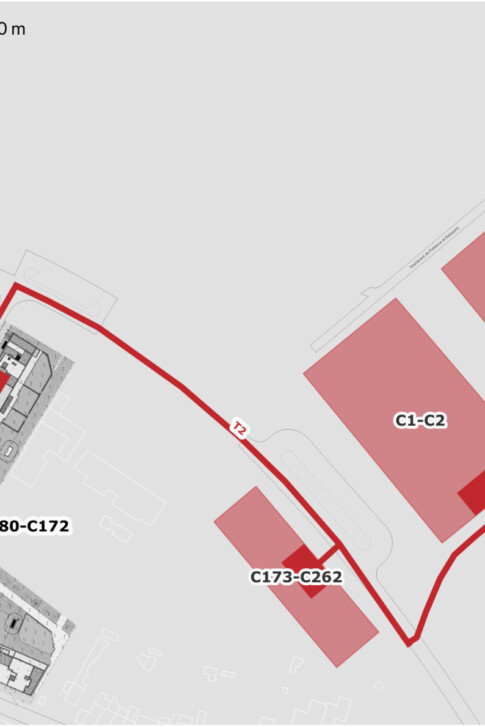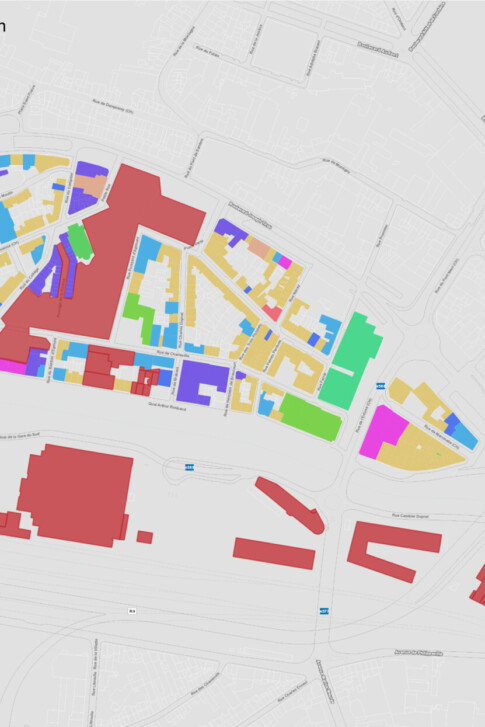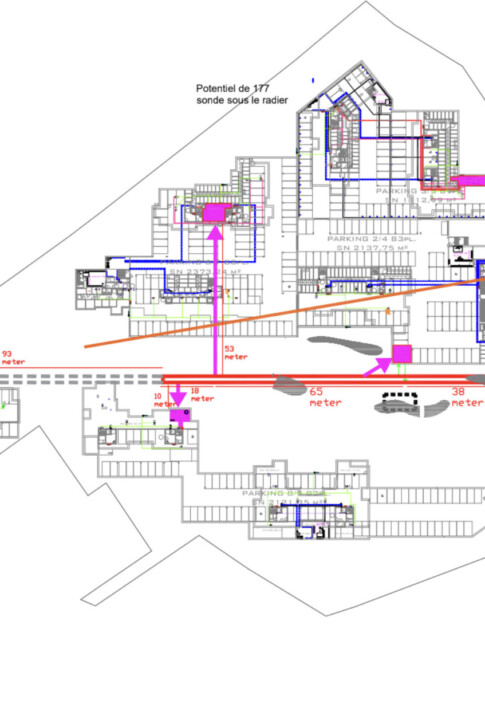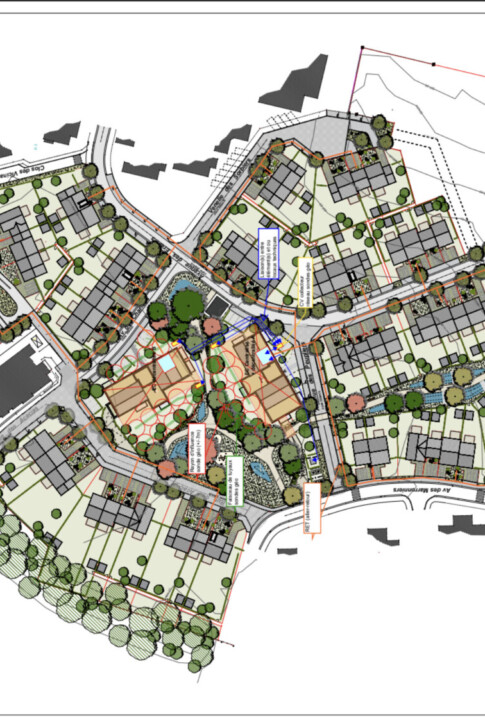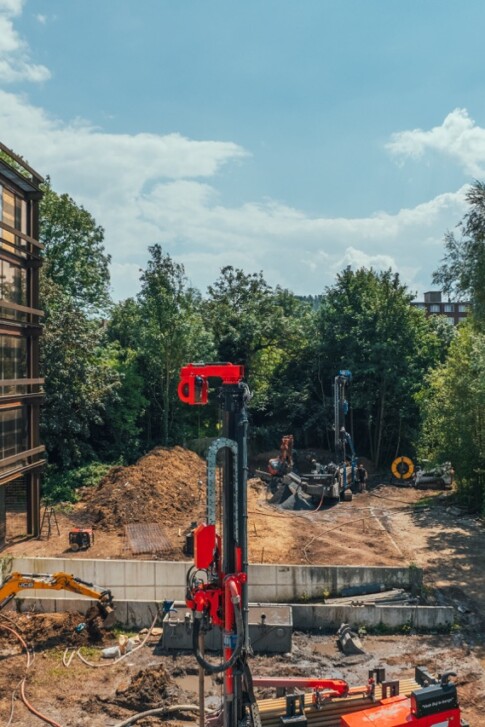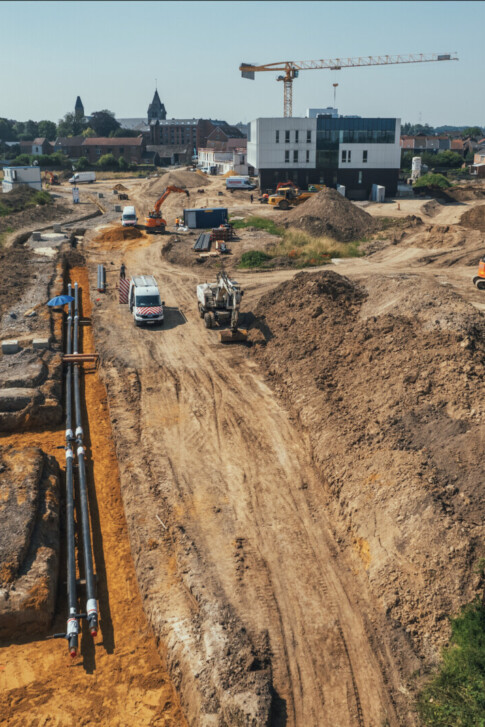Extension of an Urban Heating Network in Fleurus
Boulevard Simon Bolivar 34 – 1000 Brussels
Confidential, under development
Renewable energy for residential and municipal buildings
A Heating Network to Sustainably Power Fleurus’s Infrastructure.
Project Objectives
This network is powered by a biomethanization plant. The recovered heat is transported through a high-temperature network (85°C-65°C) and distributed to 120 housing units under construction along the route, as well as the new municipal administration of the City of Fleurus.
Waste Heat Recovery
Waste heat is thermal energy inevitably produced during industrial processes or other human activities, but which is not utilized and is generally dissipated into the environment. This lost heat can come from various sources, such as power plants, metallurgical factories, waste incinerators, or even data centers.
By recovering and utilizing this heat, it is possible to use it for energy needs such as building heating via district heating networks. This not only improves overall energy efficiency by reducing waste, but also decreases greenhouse gas emissions by substituting conventional energy sources.
The integration of waste heat into heating networks is therefore an important strategy for energy transition and the reduction of the carbon footprint of industrial activities.
Confidential, under development
Benefits for the Community
The extension of the urban heating network in Fleurus offers concrete benefits for the community by providing a green and economical heat source. By using renewable energy from biomethanization, this project reduces costs for residents and decreases the local carbon footprint, while contributing to a healthier and more sustainable environment.
